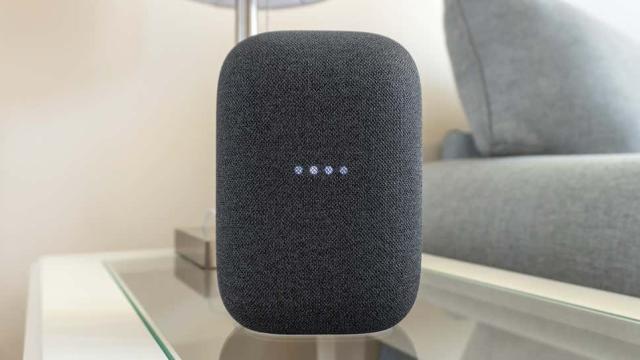Google is re-adding features to its Google Home ecosystem that were taken away due to a patent lawsuit involving Sonos. It’s a win for Nest users, but it shows that while big tech continues to bicker about ownership, customers are being stiffed on features they’ve come to expect from their products.
In a Tuesday update on the Google Nest blog, the company said those changes made to the Nest speakers, displays, and Chromecast would be reversed. Google described those changes as “where certain devices can only belong to one speaker group at a time in the Google Home app.” Google originally limited its Nest and Home devices last month in response to the Sonos patent lawsuit.
This means that Google smart home device users can once again add devices to additional speaker groups, allowing for synchronous audio throughout a home. Users will no longer run into errors when trying to add devices to groups. The update should be live for all Android users on the Home App in the next two days. It should also be available for iOS users “soon.”
It comes just a few days after a federal judge handed Google a turnaround victory against Sonos’ multi-year patent lawsuit. Sonos originally sued Google for smart speaker patent infringements back in 2020, leading Google to snap back with its own infringement claims. In May, a jury ordered Google to pay the speaker company $US32.5 million in damages for infringing on a patent for Sonos’ multi-room audio technology.
Then this past Friday, U.S. District Judge William Alsup threw that $US32.5 million verdict out the window and said Sonos’ patents were unenforceable. In his decision, he said Sonos’ lawsuit was “not a case of an inventor leading the industry to something new. This was a case of the industry leading with something new and, only then, an inventor coming out of the woodwork to say that he had come up with the idea first.”
Gizmodo reached out to Sonos for comment, but we did not immediately hear back. According to Reuters, Sonos said it plans to appeal Alsup’s decision.
The judge additionally called out Sonos for only asserting its claims on the patents in 2019 while the company filed the patents in 2006.
“In fact, in 2014, five years before Sonos filed the applications and presented the claims, accused infringer Google LLC shared with Sonos a plan for a product that would practice what would become the claimed invention. The parties were exploring a potential collaboration, but it never materialized,” Alsup wrote in his Friday decision.
Google is taking a victory lap despite Sonos saying it plans to appeal Alsup’s decision. Google’s general counsel Halimah DeLaine Prado called out Sonos in a blog post on Tuesday. She said Sonos’ lawsuit was “spurious” and further called out “aggressive actors” abusing the patent system. Prado called for more resources for the U.S. Patent and Trademark Office that would allow more time to address “complex patents.”
The ongoing patent wars between the two companies haven’t helped consumers one bit. Last year, Google filed its own set of patent infringement claims against its rival relating to its smart assistant technology. Perhaps Google is right, and we desperately need some patent reform, if for no other reason than to stop the shit-stirring and let consumers use all the features that companies promise.
